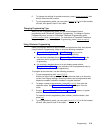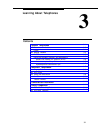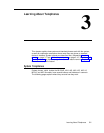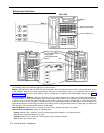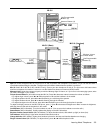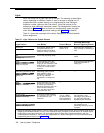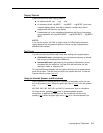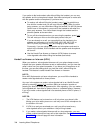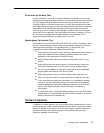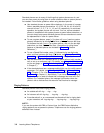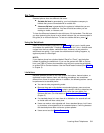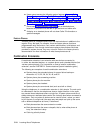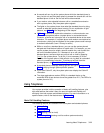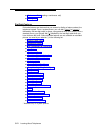
Voice Interrupt On Busy Calls
A voice interrupt on busy call is a special intercom call that lets you interrupt
and speak to another user who is busy on a call and who has the Voice Interrupt
On Busy feature (#312) activated for that user’s phone. When you use Voice
Interrupt on Busy to interrupt another user on a call, the interrupted user hears
two beeps before hearing your voice. Be aware that the third party to whom the
interrupted user is speaking will probably hear the two beeps and the faint
sound of your voice. Therefore, the message you deliver with the interruption
should be brief and discreet. If the interrupted user wants to answer you, he or
she can press a programmed Talk-Back button—the interrupted user’s
response cannot be heard by the third party in this case.
Speakerphone Performance Tips
The speaker on your MLS-34D, MLS-18D, MLS-12D, or MLS-12 telephone has a
sensitive sound-activated switch. Room acoustics and background noise can
affect the proper operation of the speakerphone. To ensure that your
speakerphone works effectively, follow these guidelines:
■
■
■
■
■
■
■
■
Avoid placing your phone in areas with high background noise caused by
loud voices, radios, printers, copiers, typewriters, other noisy office
equipment, and heater and air conditioning fans.
Avoid rustling papers near the microphone (lower right corner of your
phone).
Avoid talking before the other person is finished speaking. When you
both talk at the same time, only one person’s voice comes through.
Do not use your speaker to make announcements over a loudspeaker
paging system connected to your phone system.
When talking, always face your phone and stay within two feet of it.
Place your phone at least six inches away from the edge of your desk.
If you have difficulty hearing the other party, try increasing the speaker
volume. If you have background noise, try turning off the microphone
when the party at the other end is speaking and turning it on when you
speak. If the difficulty persists, lift your handset to continue the
conversation.
In conference rooms, a separate speakerphone (such as the AT&T S203
Speakerphone) is recommended, since the built-in speaker on a system
phone is designed for individual use.
Standard Telephones
In addition to system phones, you can connect industry-standard touch-tone or
rotary dial phones—and even some feature phones (which have built-in calling
features)—directly to the system. You can also combine standard phones on
the same extension with system phones or other devices, without using
expensive adapters or connectors.
Learning About Telephones
3-7



